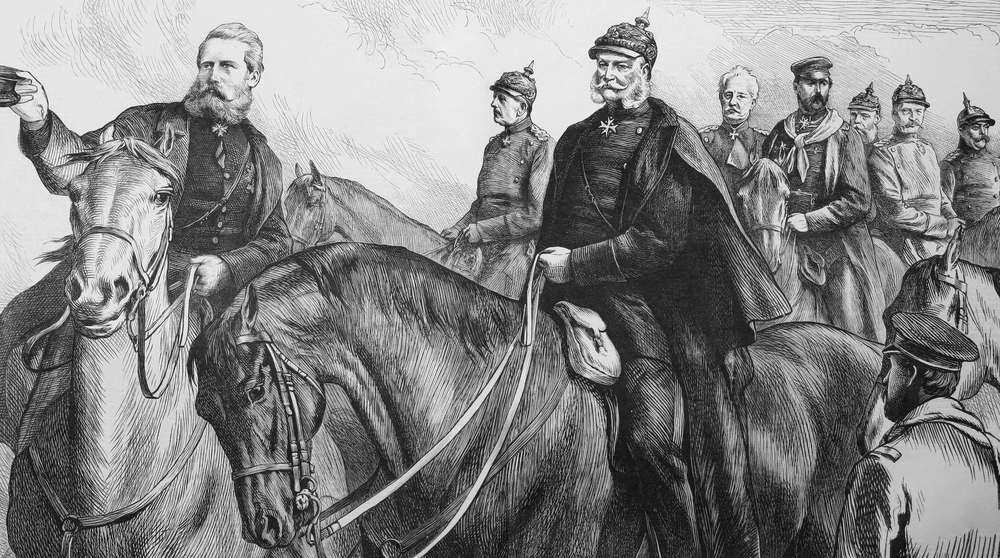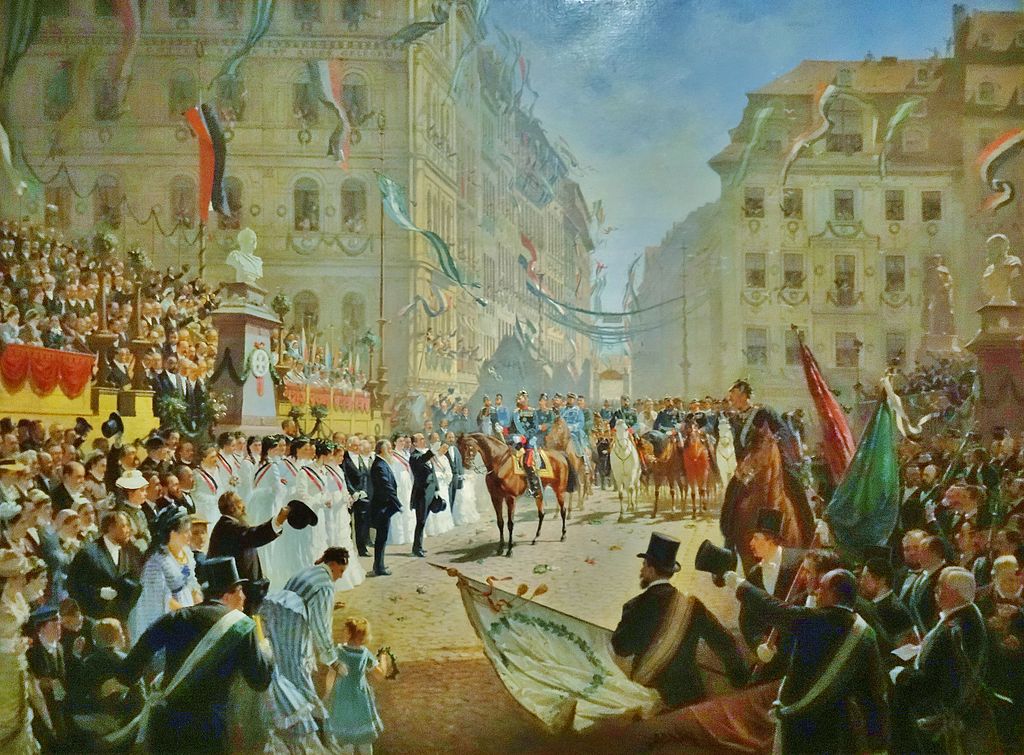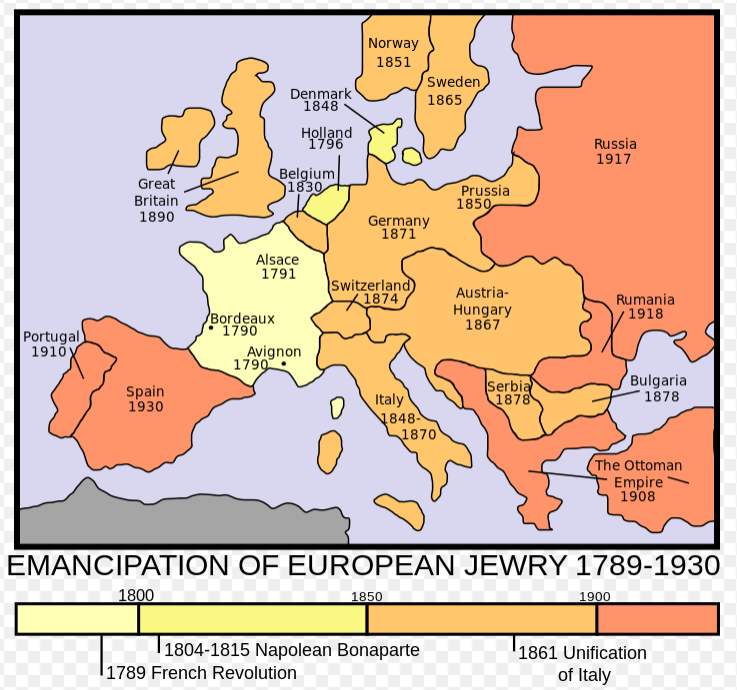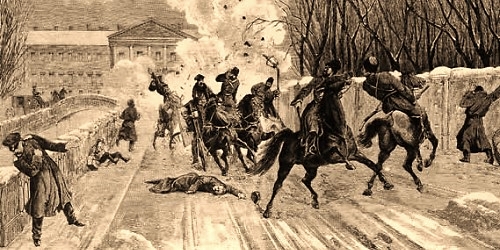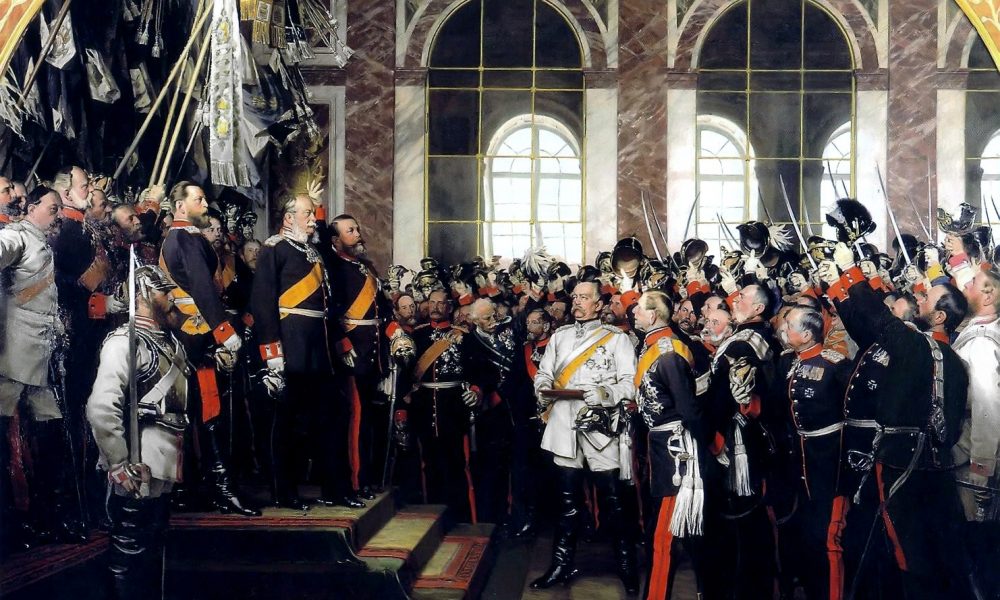
1870 AD to 1890 AD, Psalm 140: The Second Reich.
This site was first built in French (see www.147thgeneration.net). The English translation was mainly done using « google translation ». We have tried to correct the result of this translation to avoid interpretation errors. However, it is likely that there are unsatisfactory translations, do not hesitate to communicate them to us for correction.
(for that click on this paragraph)
Summary
This generation of the 1870s and 1880s.
According to our count, this generation is the 140th generation associated with Psalm 140. It is in this Psalm 140 that we therefore find an illustration of the facts of this generation.
Following the Napoleonic defeat, France had been marginalized by its victors and in particular England. This generation sees “The awakening of France” which is resuming its place among the nations.
This feeling of newfound power means that France will fall into the “Bismarck trap”.
By inciting France to declare war, Bismarck succeeded in his plan: “German unification at the expense of France and Austria”.
Thus was born the “Second German Reich on military bases”.
Then takes place “the emancipation of the German Jews, but they are no longer useful to the Reich”.
Unification is an opportunity for the Germans to return to their old values, those that Charlemagne tried to destroy. “The beast awakens”.
The beast will be unleashed against European Judaism in a few decades. In this generation, the Jewish community in Russia is suffering from violent pogroms: “The catastrophe of the 20th century already perceptible”.
Fleeing the pogroms, many Jews go into exile. In this generation a strong “Jewish emigration to the USA” takes place.
While the worst is announced, the best is also perceptible: “The Jews find their land”.
Talk
The awakening of France
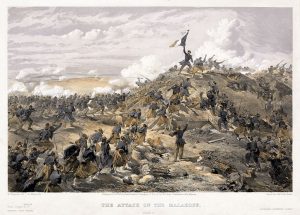
On the military plan, France [1] achieved notable external successes until 1861. The bloody Crimean War pitted French, English and Turks against the Russians from 1854 to 1856 over the protection of the Holy Places.
The influence of Russia is diminished at the Paris Congress, while France, a consecrated Mediterranean power, regains a prestige vanished since 1815. The help given to Piedmont for the unification of Italy makes Napoleon III the champion of freedom of the peoples, and the expedition of the Levant, intended to protect the Christians of Syria and Lebanon, confirms the diplomatic superiority of France.
Bismarck’s trap
On the other hand, the costly French interference in Mexico results in a complete failure. […] Threatened with a military intervention of the United States, Napoleon III repatriates his troops from 1866 to February 1867. […] More serious, the clumsy personal diplomacy of Napoleon III in the Austro-Prussian conflict of 1866 incites Bismarck, chancellor of the King of Prussia, to take advantage of the weakness of France to achieve by arms his masterpiece: the unification of Germany under the Prussian umbrella:
- It was [2] in this already tense climate (between France and Prussia following the previous conflict between Germany and Austria) that the case of the candidacy Hohenzollern (submitted by Prussia) to the throne of Spain. […] Bismarck skillfully exploited the violent reaction of the French foreign minister, Count of Gramont, evoking a new encirclement of France as in the time of Charles V. Faced with the emotion aroused in France, Prince Leopold (de Hohenzollern), in agreement with William I, withdrew his candidacy on July 12, 1870. […] As a result, the Emperor of Prussia in Paris informed William I that Napoleon III was awaiting from him a letter written by his hand, stating that Prussia had not wished to interfere with French interests. Bismarck. Informed by telegram of the events of the day (of July 13th, various diplomatic exchanges), received « carte blanche » from the king to possibly inform the press.
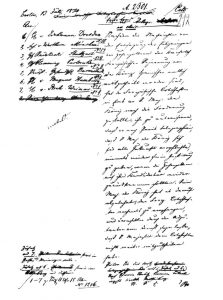
Bismarck confined himself to summarizing the contents of the « Ems telegram. » He gave the « Gazette d’Allemagne du Nord » the text thus amended, which contained the phrase likely to outrage the French opinion: « His majesty then refused to receive again the ambassador and made him say by the the aide-de-camp de service that his Majesty had nothing more to communicate to the ambassador « . What Bismarck expected of this abridged version of Ems’s telegram was not long in coming.
German unification at the expense of France and Austria
The German opposition was shocked by the impolite insistence of the French ambassador; the French were indignant that the King of Prussia had rejected their ambassador. […] On July 19, France declared war on Prussia.
The war was not limited to a Franco-Prussian conflict. The confederation of northern Germany and the southern states side with Prussia. German unity was now going to be forged on the battlefields. […]
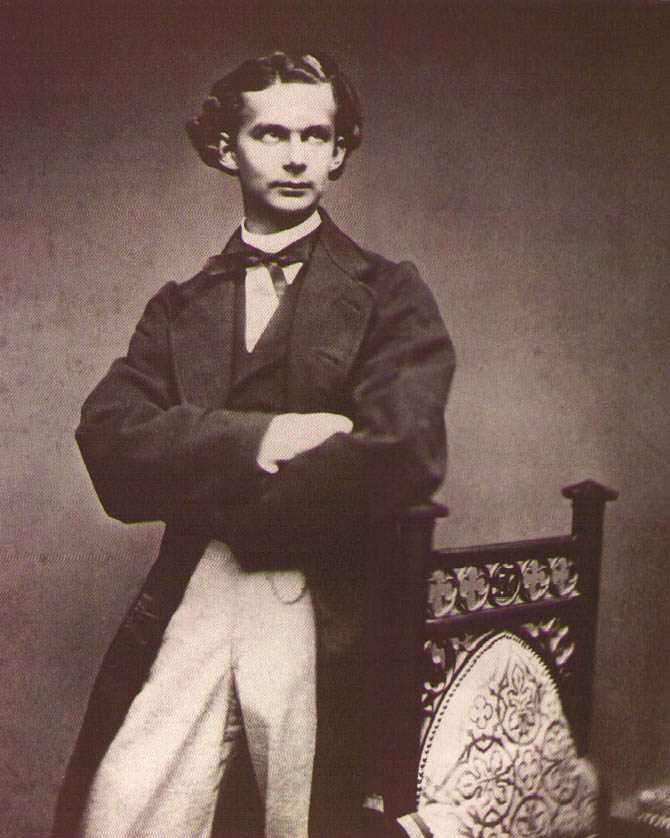
- The war of 1870-1871 allowed the completion of German unity. Public opinion in Germany was enthusiastic about the success of its armies. In the southern states, the sovereigns were urged to participate in the unitary movement, and it was King Ludwig II of Bavaria who, despite his reluctance, proposed to William the imperial crown. On December 10, 1870, even before the end of the war, the Reichstag decided that the Bund would be called Empire (Reich) and that its president would bear the title of Emperor (Kaiser). On January 18, 1871, the German princes, gathered in the Hall of Mirrors of the Palace of Versailles in the presence of Bismarck and the chiefs of the army, proclaimed the birth of the German Empire by shouting after the Grand Duke Frederick of Baden: « Long live the Emperor William! «
- The 2nd Reich was born.
- […]
- The Holy Roman Empire (First Reich) lasted nearly ten centuries, it took sixty-five years to rebuild a new empire on new territorial bases. It will take only forty-seven for this new Reich to collapse in turn under the combined blows of a military defeat (14-18) and a revolution.
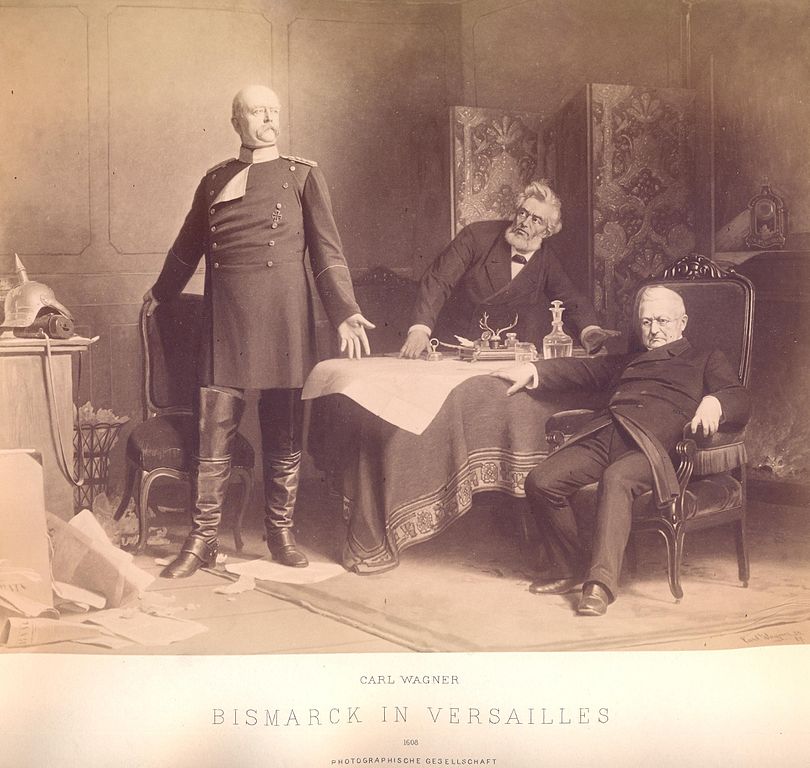
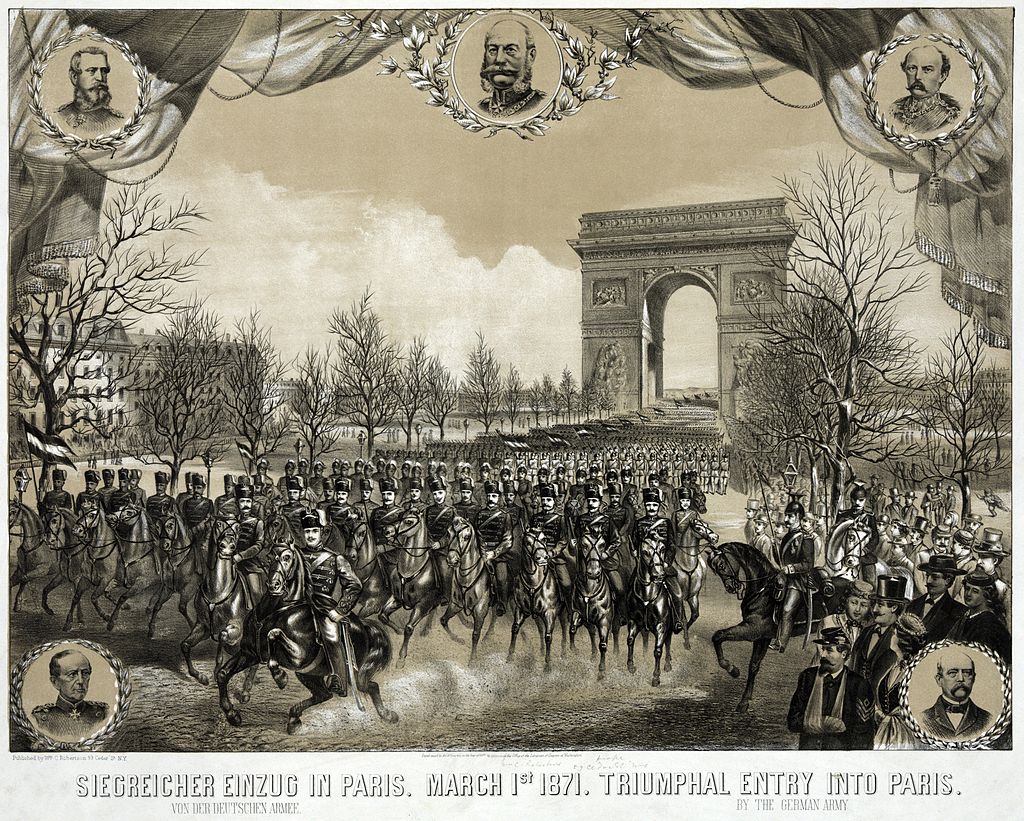
Thus, with incredible lightness, France took the initiative to declare war on Prussia on July 19, 1870, favoring the goals of Bismarck. The latter had a good time presenting the case as an assault. This allows the membership of southern German states behind Prussia. France, on the other hand, has no allies and has remained alone. […] Less than six weeks were enough for the Germans to win: Alsace was lost on August 6, Lorraine on the 18th […] From September 1870 to January 1871, Paris endured a terrible siege […] Le January 18, 1871, King William I was proclaimed “German Emperor” at Versailles. The armistice was signed on May 10, 1871.
The military bases of the 2nd German Reich
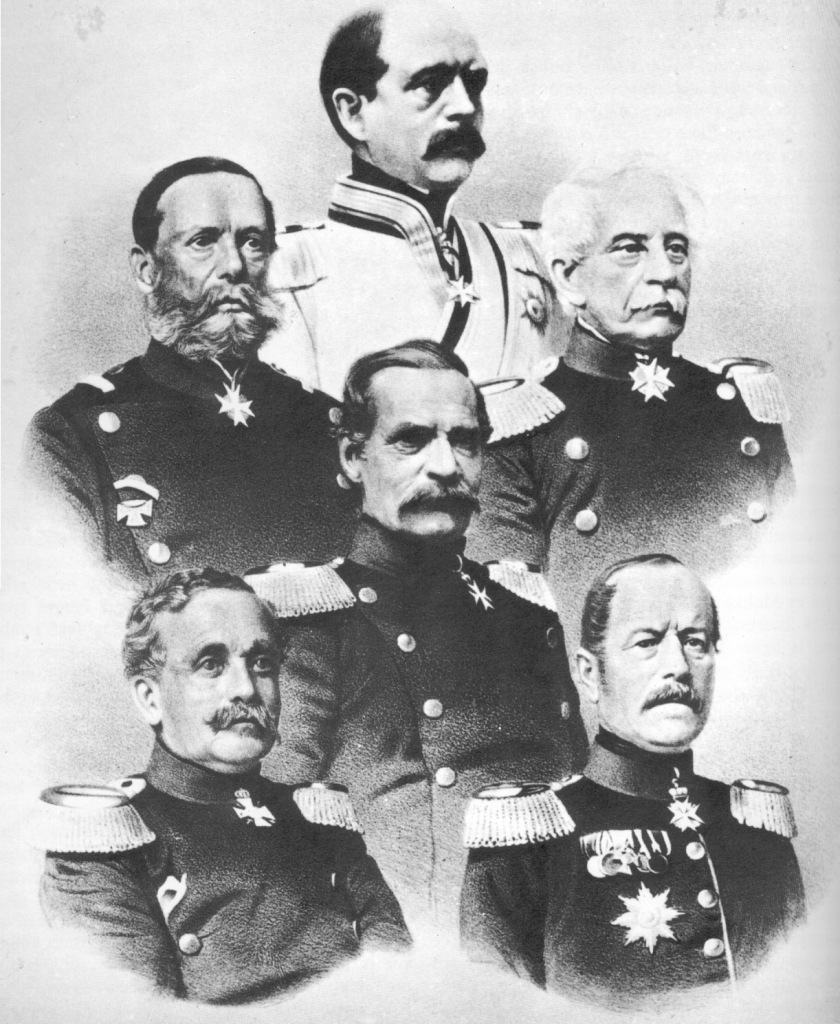
Thus, the warlike maneuvers Bismarck first against Austria with the victory of Sadowa and then against France who was led in 1870 result in the creation of the Second Reich under his banner. Prussia « doubles » Austria.
The war thus provoked a first time against Austria then against France is an artifice very useful to Bismarck in the realization of its objectives:
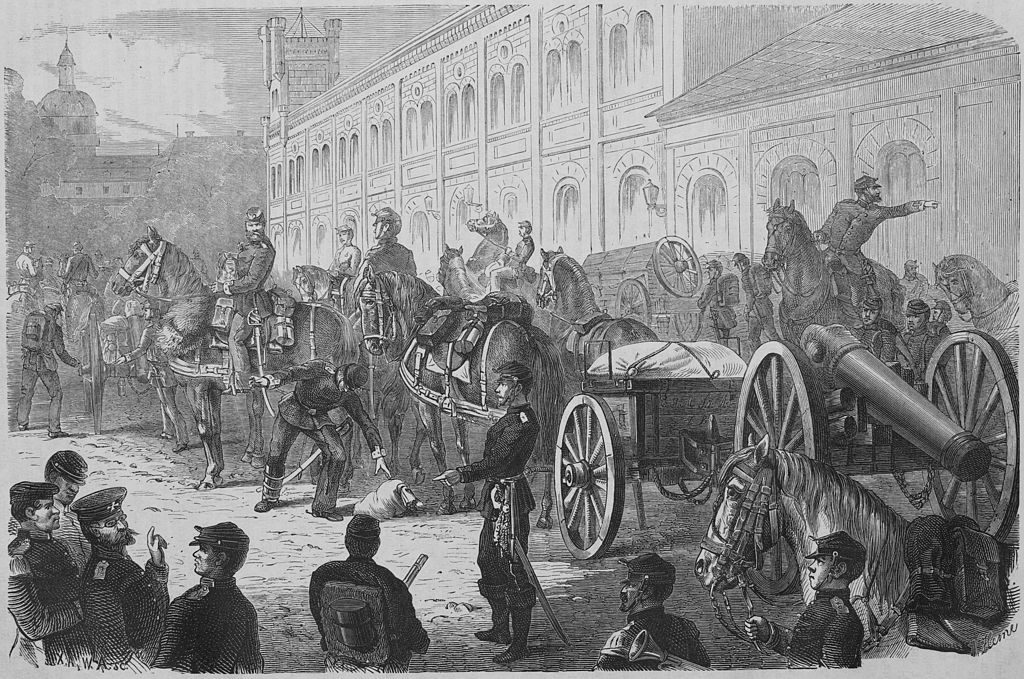
- War [3] is not in the Bismarckian instrument a necessary means. But it is a means like the others in the service of a policy; the war which must be known to begin if necessary, and which one must know how to terminate; war which is certainly not an end in itself. To complete the German unity around Prussia, it will be necessary to disarm the French opposition, in one way or another, and the strong matter appears as the most probable. However, the European context must be favorable, the preparation of the Prussian armies and the forces of the South must be completed and the circumstances compel the adversary to assume responsibility for the use of arms.
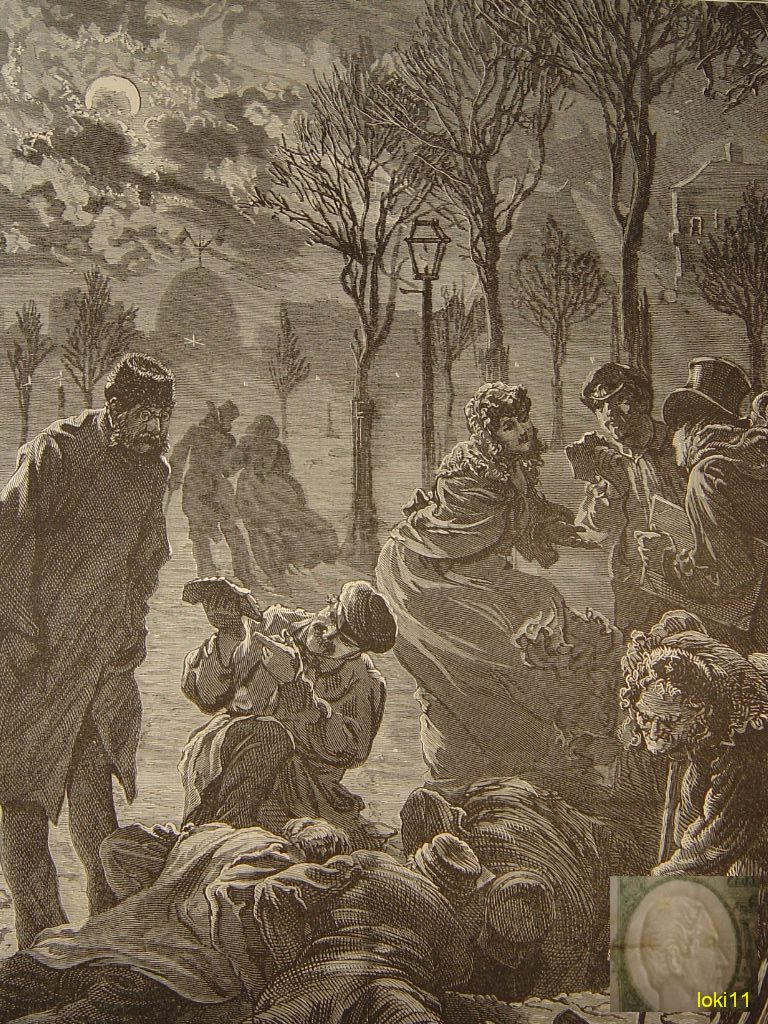
Bismarck had made it clear that Germany had to be built with iron and blood:
- In 1849[4], the future William I had declared: « Whoever wants to rule Germany must first conquer it. Bismarck could add fifteen years later (1864): « It is not by speeches and by majority votes that the great questions of the moment will be settled – that was the error of 1848-1849 – but by iron and blood. «
Before him, William I had recalled the importance of military power for Prussia:
- In the message [5] he addressed to the people on January 7, 1861 on the occasion of his accession to the throne, William I defended the military power of Prussia because it is the « army » that « created the Greatness of Prussia. The army must be strong and respected to weigh a heavy weight in the political balance … « .
It was these warlike maneuvers that led to the birth of the Second Reich, the soil of the Third Reich, which the psalmist dreads and evokes at the beginning of the psalm of this generation.

- For the conductor, a song of David.
- Rescue me, O Lord, from an evil man from a man of robbery You shall guard me.
- Who plotted evil things in their heart; every day they gather to wage war.
- They whetted their tongue like a serpent; the venom of a spider is under their lips forever.
- Guard me, O Lord, from the hands of a wicked man; from a man of robbery You shall watch me, who plotted to cause my steps to slip.
German Jews emancipate but are no longer useful to the Reich
Following the creation of the Second German Reich, the emancipation of the Jews is proclaimed on January 18, 1871. The satisfaction of the Jews of Germany will be short-lived:
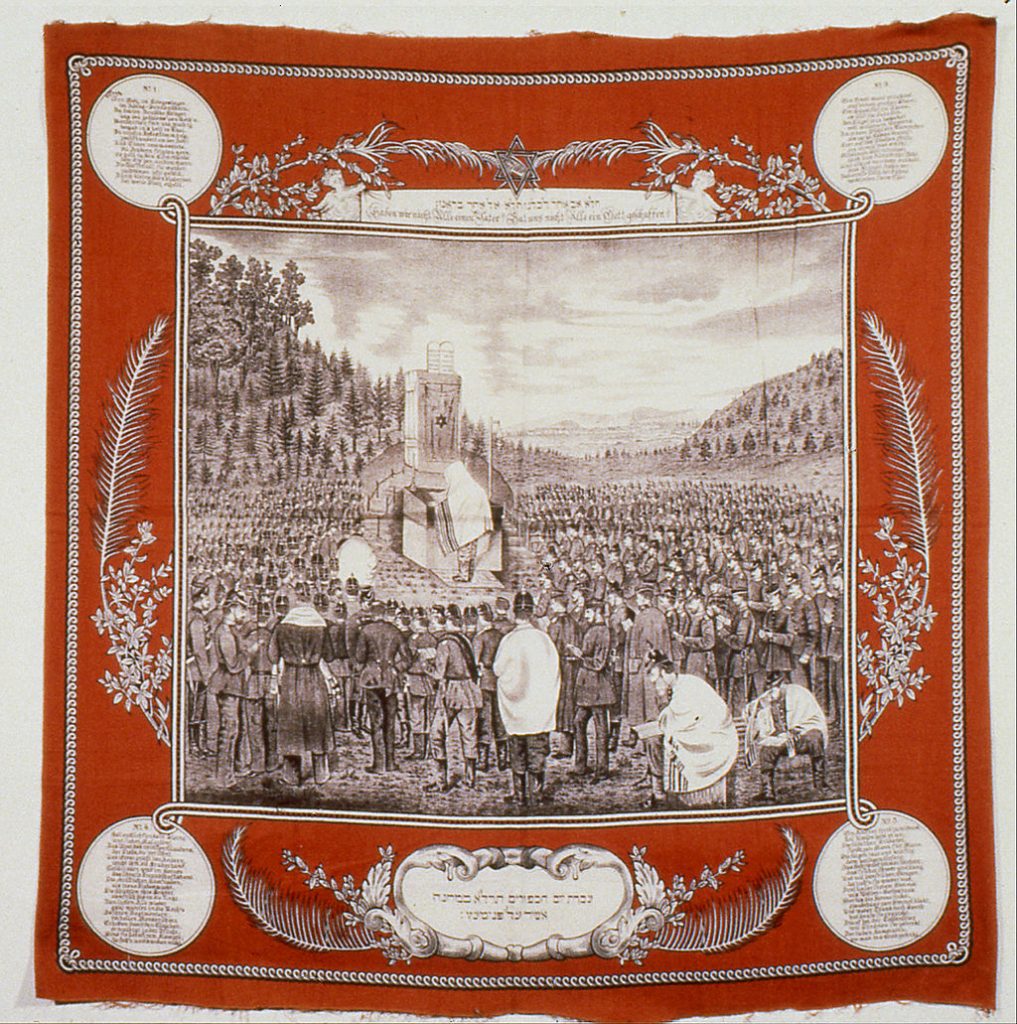
Bismarck had indeed been able to rely on the Jews to make his project a success, like the first Prussian monarchs when they wanted to propel Berlin to the forefront of Europe.
The German unification completed, the Jews, despite their loyalty, are no longer useful to Aryan Germany.
In the first place, Bismarck did not fully succeed his reunification which would have been more natural under the auspices of the Austrian empire.
The wounds of the new Reich are already perceptible for some visionaries:
- Observant [7], if not impartial, observers, such as the Swiss historian Jacob Burckhardt, the philosopher Friedrich Nietzsche, the historian Theodor Mommsen, or the Prussian physician Rudolf Virchow, the latter two prominent members of the liberal left-wing parliamentary opposition, saw clearly and with anguish that in the wake of Bismarck Germany was engaged in the worship of power, strength, material success, the superb national, contempt of the weak and foreigners.
Nietzsche, one of the few German intellectuals who does not adhere to anti-Semitism, has visionary thoughts:
- « I [8] never met a single German who loved Jews, » observed Nietzsche at the end of the 19th century, which was a brilliant exception to the rule. […]
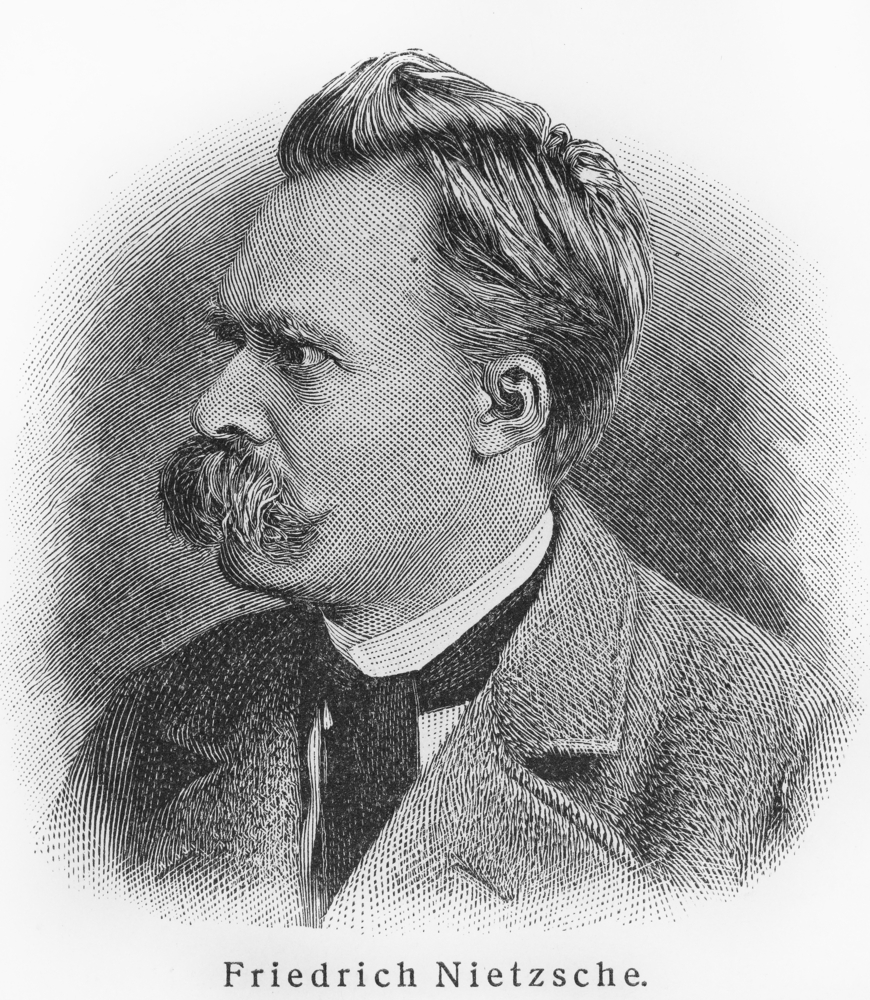
Some of its developments, a century away, have an almost prophetic sound:
- « What [9] Europe owes to the Jews? Many good, many bad, and especially this, which is the best and the worst, the great style in morality, the formidable majesty of infinite demands, infinite symbols, the sublime romanticism of moral problems, that is to say to say what is most seductive, more heady, more exquisite in these games of color and these seductions, the reflection of which today glowes the sky of our European civilization, a night sky and which may well be switch off. We who among the spectators are artists and philosophers, we feel towards the Jews of the recognition « .
The beast wakes up
As for the vanquished countries, they will cultivate a spirit of revenge, perhaps similar to that of those who will be defeated in 1918.
The German unification of the Second Reich attempts to reproduce that of the First Reich or Holy Roman Empire (these two names attributed a posteriori) which also grouped most of the territories of German languages between 962 and 1806, almost a thousand years, duration that will wish to last also the future III Reich Nazi.
This 1st Reich was created on the partition of the empire of Charlemagne by the treaty of Verdun in 843, which established the power of Louis II, said the Germanic, on the « Francie orientale » gathering all the territories mainly in the east of the Rhine unified by the language used: German.
It is this same language which serves as element of unification to the II Reich and which will be one of the engines of unification of the Third Reich.
The first Reich is effective under Otto I in 962. But the true founder of the German dynasty is Henry I the birdcatcher, so nicknamed because of the bird traps he was tending. He is a Saxon and descendant of Widukind, the pagan hero of the Saxon struggle against Charlemagne.
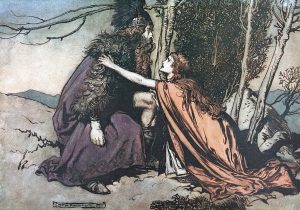
The resurgence of Pan-Germanism in the early nineteenth century shows that the Carolingian pacification of German territories has not really been effective. As shown by the recourse to the ancient heroes of German mythology prior to the penetration of Christianity. Especially in the works of Wagner who is both a champion of pan-Germanism and racial antisemitism.
Antisemitism can only be racial in this new Germany, because religious antisemitism is indirectly a submission to the beliefs imposed by Charlemagne, since it denotes a full adherence to Christianity, a doctrine derived from Judaism.
It is interesting to see that the word antisemitism is created in the present generation of the 1870s and 1880s by those who want to extend it to Germany. That is, to reduce Jewish access to institutions to German life. Christian anti-Semitism fought a belief while German antisemitism, detached from the newly defined religious belief, fought a race the « Semites » in opposition to the Aryan race, the superior race.

The psalmist had already predicted the danger that German lands represented for Jews in Psalm 91 that corresponding to the generation of the years 870 and 880 where he already evoked the snares of the fowler.

But at the corresponding generation, the Jews attracted by the apparent pacification of these lands established themselves there numerous. Then they suffered great evils, pushing many of them to take refuge in Polish lands, these being now mainly under Russian control.
Other Jews settled again in ignorant German land, pretending to ignore the fate of the Jews of previous generations on these lands. The trap which had been thus opened by Henry the fowler confines itself once again to this generation on the Jews who have taken refuge in German or Polish territory, and thus in Russian territory as well as in all the satellite countries of Europe Eastern.
It is the set of these accumulating threats evoked by the psalmist in the following of the psalm of this generation:

- Haughty men have concealed a snare for me, and [with] ropes they spread a net beside [my] path; they laid traps for me constantly.
The catastrophe of the 20th century already perceptible
We are in fact in a pivotal generation regarding the fate of Jews in Europe:
- In the temporal organization [10] of this long nineteenth century, we can schematically distinguish a first time marked by the processes of emancipation, reform and adaptation of Judaism to modernity, then a second time articulated around a major break, those of the years 1870-1890, marked by a significant recomposition, which falls in several directions: emergence of racial antisemitism, demographic upheavals related to the arrival of the Jews of the East, emergence of a Jewish nationalism.
If the German trap will soon be confined to the Jews of Europe, the largest Jewish community in Europe to this generation is also in danger: the Jewish community of Russia, which historically had left Poland before the Russian annexation, underwent the first Pogroms.
Yet the reign of Alexander II (1855-1881) had greatly improved the fate of the Jews in Russia, who were becoming more and more numerous in the teaching of integrating themselves in large numbers into the Russian middle class.
The abortive revolt of Poland against the Russian tutelage in 1863 led to a Russification of Poland, which was renamed the « Vistula Region » in 1874, resulting in Polish Jews becoming more empowered to emancipation. Hope is also short-lived:
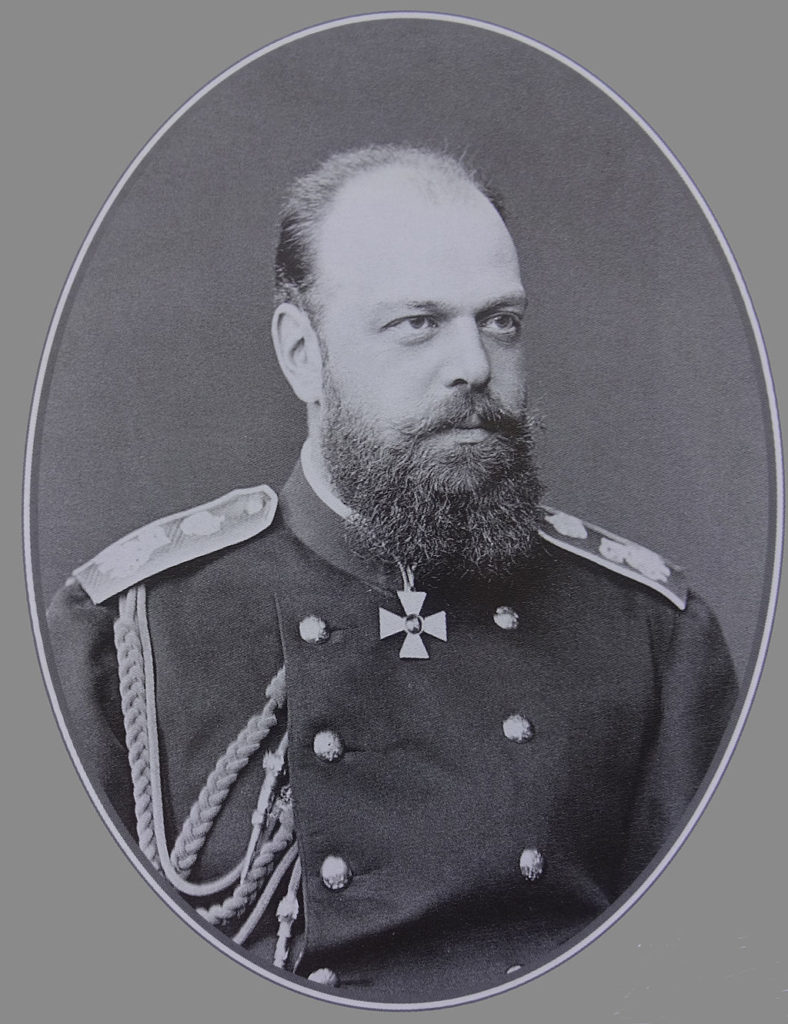
- The « Western » trajectory [11] of the Jews of Poland as well as of Russia stopped abruptly in March 1881, following the assassination of Alexander II. The nihilist bomb that killed the tsar revived the hatred of the West and lit up throughout the Russian empire a frightful anti-Jewish bang that immediately resulted in a series of pogroms.The commissions of inquiry appointed by the new Tsar Alexander III (1881-1894) to determine the causes arrive hastily to the conclusion that it is « the Jewish exploitation » which is at the origin of the riots. From then on, a series of so-called « provisional » regulations were promulgated in May 1882, erasing all the progress recorded since 1855.
The first pogroms follow:
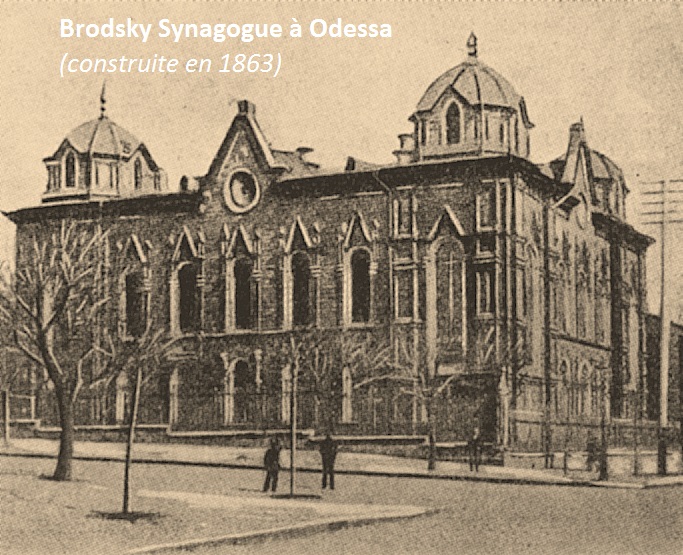
- In 1871 in Odessa [12], a pogrom (Russian word meaning « to completely destroy ») gave the signal of sudden violence, here and there, breaking any possibility of Judeo-Russian dialogue. […] On March 1, 1881, Tsar Alexander II was assassinated by terrorists of the organization « Narodnya Volija », « Will of the people »: in a few weeks began a veritable tide of anti-Jewish pogroms that made hundreds of deaths between 1881 and 1884, and whose Jewish history keeps the memory under the name of « Sufòt ba-Nèghev » (« southern storms »).
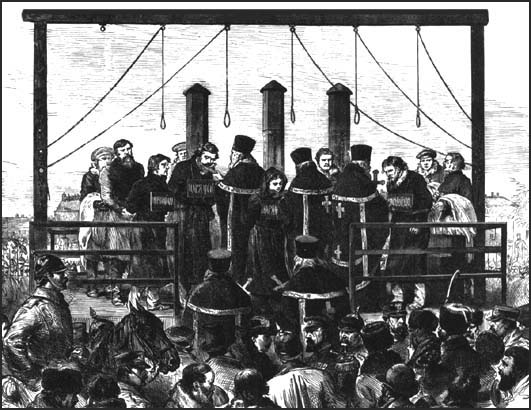
- The disorder began in southern Russia and Ukraine, before reaching further, Warsaw and Novgorod, for example. The Russian authorities interpreted this unleashing of hostility as a desire for popular vengeance: among those sentenced to death for the assassination of the Tsar, there was indeed a Jewess, Hessia Helfman. In reality, the disorders and the violence were driven from the ruling circles close to Alexander III, son and successor of the assassinated tsar. […] The Jews thus became a scapegoat for the difficulties of the regime. […]
- In 1882, the pogroms were particularly brutal and the government took a set of provisions known as the « May Laws » and presented as acts of goodwill aimed at reducing tensions between Jews and Russians. But, in reality, they were a real turn of sight towards the Jewish minority: reduction of the zone of forced residence, already narrow; restrictions on civil rights and work opportunities. […] Already marked, the poverty is aggravated by the very fast increase of the Jewish population, passed from 1 600 000 in 1820 to 4 000 000 in 1880. […]
Also:
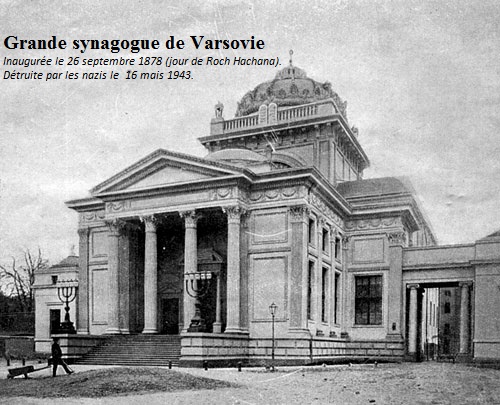
- On Christmas Day 1881 [13], a pogrom broke out in Warsaw. At the time of Mass in the Holy Cross Church, we shout: « Fire! » The crowd, panicking, crashes to go out and 29 people die choked. It is quickly realized that it is a false alarm. The tragedy of these 29 dead is all the more poignant. Suddenly, it is rumored that two Jews, hidden in the church, would have shouted: « Fire! » This is the beginning of a very violent pogrom, which sweeps over the city for three days. There are no dead, but wounded, and more than 1500 houses sacked and made uninhabitable, as well as several synagogues.
- Protests take place abroad, but without effectiveness. […]
- The only recourse is emigration.
While in German lands, Jews often seek their salvation in a complete assimilation and abandonment of their religion, the Jews of Poland and Russia, despite adversity, do not break the covenant with God and take refuge in the pray.
This is what the following psalm of this generation expresses:

- I said to the Lord, “You are my God.” Hearken, O Lord, to the voice of my supplications.
Jewish emigration to the USA
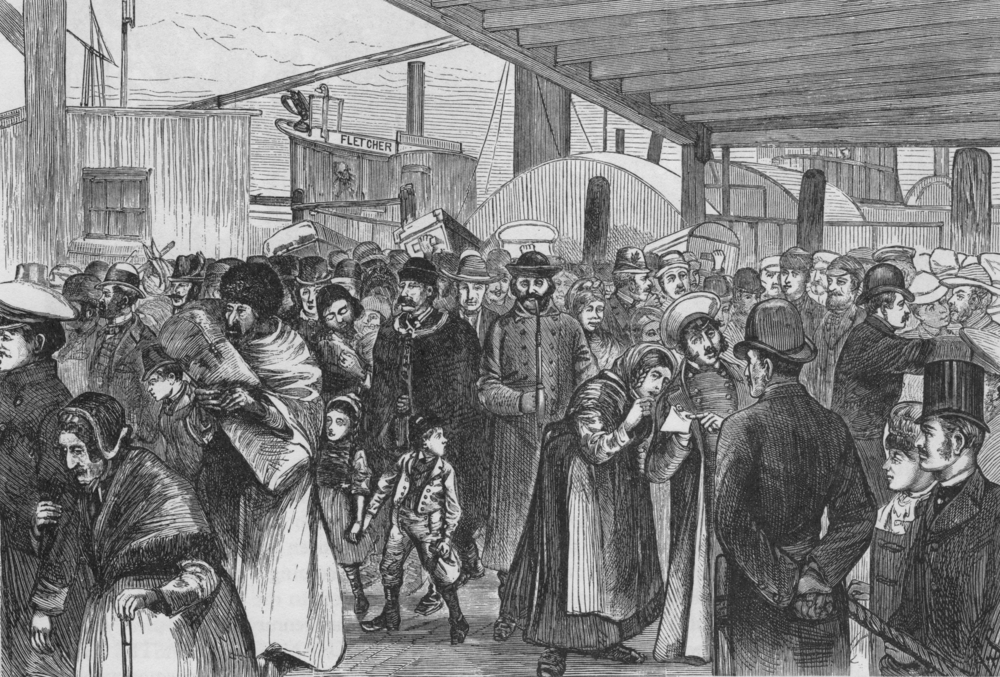
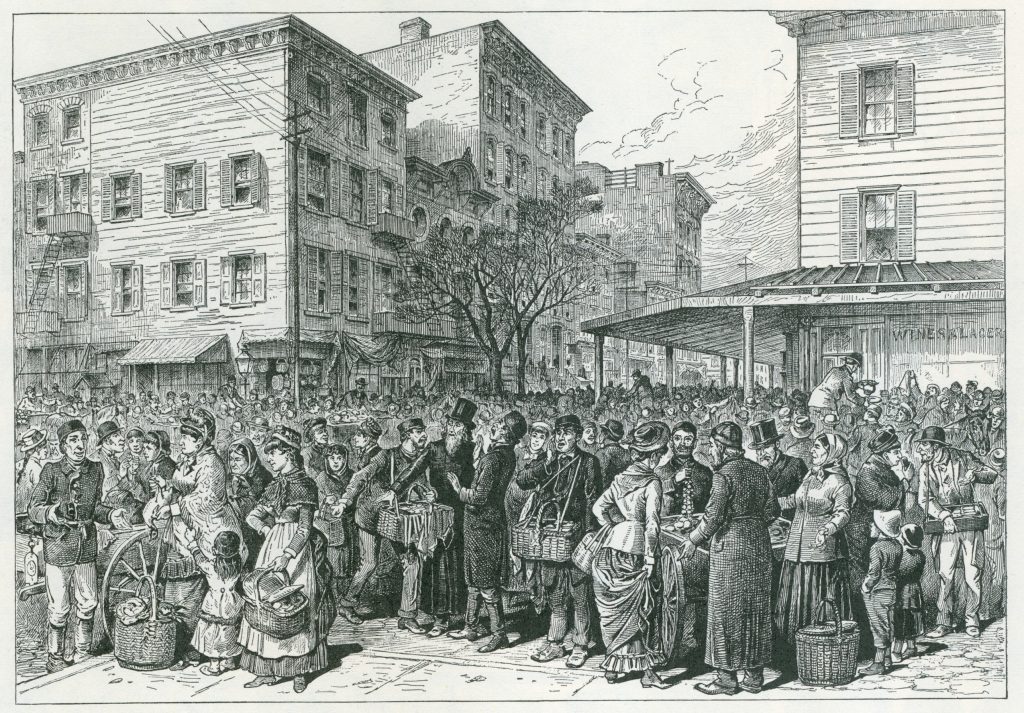
One of the lifelines for the Jews hit by these pogroms remains immigration to seemingly less hostile lands. Mainly the United States.
Whatever the difficulties of emigration, the pogroms managed to preserve much of European Jewry by pushing the Jews out of Europe. Their descendants will avoid Nazi extermination, while many family members who have preferred to stay in Europe will not survive in the twentieth century.
This massive immigration, Jewish or not, will allow the American economy to assert itself as an essential power in the twentieth century. Power that will defeat the will of the Germans to obtain an Aryan land without Jews.
This is what justifies the continuation of the psalm of this generation:

- God, O Lord, the might of my salvation; You shall protect my head on the day of battle.
- O Lord, do not grant the desires of the wicked; do not let his thoughts succeed, for they are constantly haughty.
But as the fate of the Jews of Europe unfolds, those who participate in this elaboration will soon kill each other. The First World War will see the end of the Second Reich which introduces racial antisemitism to this generation in favor of an idealized Pan-Germanism, and the end of the Tsarist dynasty in Russia, which has this generation, tries to establish antisemitism as national cement.
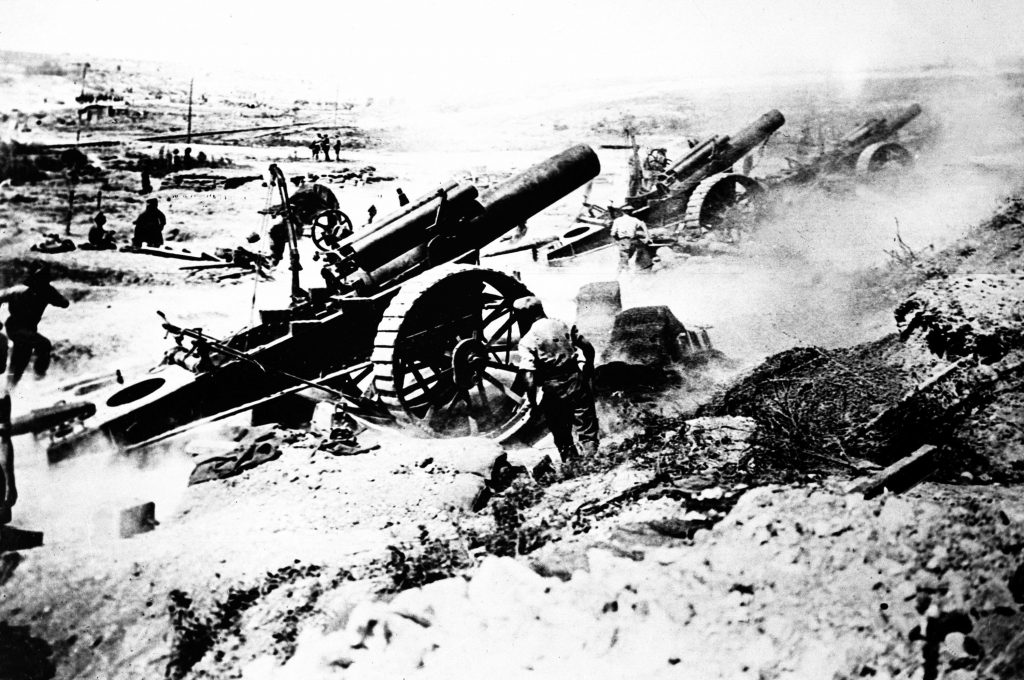
It is in « fiery coals« , » fire » and « war« that these two empires will disappear, during the First World War whose struggles illustrate the terms used.
This is illustrated by the following of the psalm of this generation:

- The numbers of those who surround me, may the lies of their lips cover them.
- Let fiery coals descend on them; He will cast them into fire, in wars, so that they will not rise.
- A slanderer will not be established on earth; a man of violence, the evil will trap him with thrust upon thrust.
Unfortunately, the fall of these empires does not mean the end of Jewish misfortunes, especially in Europe. The fall of the Second Reich will result in the birth of the Third Reich wanting the physical destruction of the Jews of Europe. The Tsarist empire will succeed the Soviet regime which will seek to eliminate Judaism as a religion.
Jews regain their land
In spite of all the rebirth of the Jews on their land is a little more drawn to this generation:
- The year 1882 [14] marks a turning point in the history of Eretz Israel. That year two groups arrive, thirty young people. They are determined to work the land with modern methods, and to introduce into Palestine, where they have decided to live, an ideal both national and socialist. Their arrival is considered the beginning of a new type of alya. Hence the name become classic, but inaccurate « first alya ». Indeed (throughout the previous centuries and long ago) there have been almost uninterrupted alyot. The alya of 1882 should be the hundredth aliyah, or something similar. (it should rather be called) « The first agricultural alya ». It is their desire to be farmers on the ancestral land that gives these olim groups their specific character.

The failure of Montefiore in Jaffa, in the previous generation of the 1850s and 1860s, did not discourage the Jews in the hope of reestablishing an ambitious agriculture in the Holy Land. Considering that this failure is due to a lack of preparation, Charles Netter takes the initiative to create a school dedicated to agriculture. Netter’s project [15] was born in 1870 with the creation of the Mikveh Israel school near Jaffa, which made Montefiore wonder during his visit in 1875. Despite some unfortunate miseries, in 1879 the success was the appointment.
In spite of the darkening horizon for the Jews of Europe, the dawn begins to point in the promised land, justifying the conclusion all the same optimistic of the Psalm of this generation:

- I know that the Lord will perform the judgment of a poor man, the cause of the needy.
- But the righteous will thank Your name; the upright will sit before You.

[1] (under the scientific direction of) Theodore Zeldin: « History of the world, from 1789 to 1918 ». Chapter: « The end of the second empire ». (French: « Histoire du monde, de 1789 à 1918 ». Chapitre : « La fin du second empire ». (p. 322 à 327) )
[2] Henry Bogdan: « History of Germany ». (French: « Histoire de l’Allemagne ». (p. 307-308 et 310,311) )
[3] Joseph Rovan: « History of Germany ». (French: « Histoire de l’Allemagne ». (p. 549) )
[4] Henry Bogdan: « History of Germany ». (French: « Histoire de l’Allemagne ». (p. 301) )
[5] Henry Bogdan: « History of Germany ». (French: « Histoire de l’Allemagne ». (p. 299) )
[6] Michel Abitbol : « Histoire des Juifs. De la Genèse à nos jours ». (p. 378)
[7] Joseph Rovan: « History of Germany ». (French: « Histoire de l’Allemagne ». (p. 568) )
[8] Léon Poliakov : « Histoire de l’antisémitisme : 2 – l’âge de la science ». (p. 263)
[9] Friedrich Nietzsche « Beyond Good and Evil » (published in 1886). Quoted by Leon Poliakov: « History of antisemitism: 2 – the age of science ». (French: « Par delà le bien et le mal » (publié en 1886, paragraphe 250). Cité par Léon Poliakov : « Histoire de l’antisémitisme : 2 – l’âge de la science ». (p. 267) )
[10] (Sous la direction de) Antoine Germe, benjamin Lellouch et Evelyne Patlagean : « Les Juifs dans l’histoire ». Chapitre de Evelyne Oliel-Grausz : « Les Juifs d’Europe occidentale au XIXe siècle ». (p. 413).
[11] Michel Abitbol: « History of the Jews. From Genesis to our days. (French: « Histoire des Juifs. De la Genèse à nos jours ». (p. 383) )
[12] Riccardo Calimani; « Jewish wandering ». (French: « L’errance juive ». (p. 487 à 490) )
[13] Renée Neher-Bernheim: « Jewish History of the Revolution to the State of Israel ». (French: « Histoire juive de la Révolution à l’Etat d’Israël ». (p. 483) )
[14] Renée Neher-Bernheim: « Jewish Life in the Holy Land, 1517-1918 ». (French: « La vie juive en Terre sainte, 1517-1918». (p. 229) )
[15] See: Renee Neher-Bernheim: « Jewish Life in the Holy Land, 1517-1918 ». (French: « La vie juive en Terre sainte, 1517-1918». (p. 224 à 227) )


